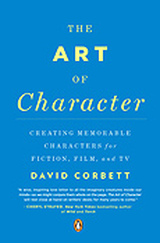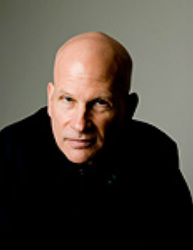Go ahead, carry that analogy over to editing.
So yes, I'm still submerged in the deep, dark sea of editing, battling my sharp-toothed demons, and I will be for a bit longer, despite the cute "Editing Week" moniker.
Anyone want to know what I'm doing down here in the deep?
I thought I'd share a bit for your voyeuristic enjoyment, and perhaps even a little learning pleasure. Here goes.
| This week at Delve Writing we hosted multi-published, best-selling author David Corbett who gave a workshop The Outer Limits of the Inner Life based on his book, THE ART OF CHARACTER. I attended, thinking perhaps I'd glean a few bits of wisdom that could help with my editing. Boy was I ever wrong. I learned so much in David's workshop, I'm surprised my brain didn't explode. David encouraged us to mine our own lives and psyches for emotional gems we can use in our fiction writing. To point us in the right direction, he asked tons of questions, like: |
Delving into your past can be painful! But David didn't push us to do it because he's a sadist (he may be one--I have no personal knowledge one way or the other--but this isn't the reason he gave). The reason for a writer to do this kind of "work" (and make no mistake, it is work) is to bring authenticity to our characters. Reflecting on how you reacted in your most helpless moment can shed fourteen suns worth of light on what your character would do, why he'd do it, how he'd do it, and what he'd feel and think while doing it.

As a little boy he secretly watched as his mother was euthanized against her will.
This event shapes Reid's life from that moment forward. For example, he becomes a medic to help others, and refuses to commit euthanasia even in the face of severe punishment.
That right there gave me a lot to think about.
But it was a different question posed by David that shone a spotlight into my character's core:

What, you want to know what that moment of guilt is?
Okay, here's Reid's guilty moment:
When Reid was nine, he had the chicken pox and was quarantined with a ten-year-old girl, Kayla, who stole his heart. It was just the two of them, laughing and telling stories to distract each other from scratching. Despite the itching, it was the best time of Reid's young life. That is, right up until his older brother Brian came down with chicken pox, and Kayla fell head over heels for Brian. Reid wished Brian were dead so he could have Kayla to himself. Then when Brian developed complications and nearly died, Reid felt responsible. He promised Brian that if he lived he could have Kayla. Brian recovered, but Reid never did. He still carries that guilt, even when intellectually he knows better. He's never stopped loving Kayla, but he's never broken his promise to Brian. Not even when Brian dies leaving behind his pregnant young bride -- you guessed it -- Kayla.
So, writers, ask yourselves:
When was I most sad, ashamed, or afraid?
Then, David suggests, look at the converse of that moment:
What was my golden moment, when I was most joyful? Or most proud? Or most brave?
Now imagine your character experiencing those opposite emotions, and draw a line connecting them:
How does the character get from anguish to joy? From fear to courage? From pride to shame?
By taking opposite emotional gems -- mined from your own life -- you can create a character arc.
Jiminy, that's enough right there to keep me revising into next year. But that's not all David shared, not by a long shot.
What really struck me during David's workshop was the offhanded comment:
Now that got me thinking. Not just about how chock-full of great writing knowledge David must be to effortlessly discard such insightful bits of wisdom, but about how this particular bit of wisdom applies to my character:
You see, Reid lives in a barren, post-apocalyptic world where nothing will grow. He doesn't believe any other way of life is possible, so he dedicates his life as a medic to keeping people alive. Maintaining.

Here's an excerpt:
The city below was brown and silent and still.
Reid couldn’t imagine it any other way. He’d never shared his brother Brian’s conviction that the world would be reborn and green again. Kayla had. He wondered if she still did, now that Brian was gone.
This is the moment when everything changes for Reid.
Now he knows that there's grown food in the world. He has hope that his people won't starve, hope that the world will be green again. After he sees the apple, he will never be the same, never look at the world in the same way again.
In this pivotal moment, Reid goes from being someone who's trying to maintain a way of life to someone who's trying to create a new one.
One is busy provoking the community to defend their dysfunctional way of life against fabricated "Raiders," while the other is out to create his own way of life that runs counter to what Reid wants ... Or does it?

To learn more, check out David's book, THE ART OF CHARACTER, visit his site at http://www.davidcorbett.com, and head over to the "Recordings" section of Delve Writing where you can listen to David's 2-hour workshop completely free. Or click here if you can't wait another moment and want to watch the recording now.



 RSS Feed
RSS Feed